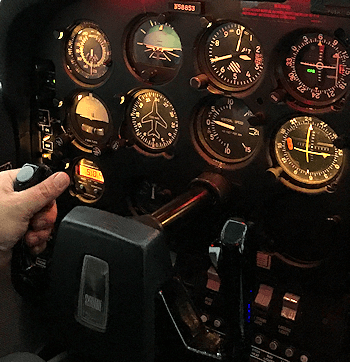Subscriber question:
"While flying on a VFR night cross-country, my alternator quit working. I decided to land at an airport right below me, rather than continue to my home airport (Class C) which was only 20 minutes away. Could I have continued to my home airport? I had a new battery and was told a good battery should last 45 minutes to one hour."
- Joe F.
Wally:
 “This question poses a good example of difficult aeronautical decision making.
“This question poses a good example of difficult aeronautical decision making.
Proceeding to our destination is a strong pull since we pilots always like to complete the mission. Whereas landing short presents a bunch of problems such as how will we get to the destination? How will we get back to get the airplane? Can it get fixed at this airport? Sure would be nice to get home if I could.
One of your first decisions comes as you work the checklist where it tells you to turn off non-essential electrical loads. How about your navigation lights, beacon lights and strobes? Remember, its night time so turning all those off will prolong your battery life but also make you invisible. Which is safer, being able to talk or being visible?
Of course if your battery holds out, you can get home on time but the other side of that is the possibility that you could be arriving at a busy class C airport with no lights and no radio. Not a pretty situation. Not to mention that depending upon your airplane you may also be required to do a manual landing gear extension and perhaps a no-flap landing.
Since we have no way to know just how long the battery will hold up in this situation, I would not be willing to risk a stealth arrival at a class C airport. I think that could be very difficult to explain knowing I passed up closer landing opportunities. Instead I would pick the closer airport, inform the tower that you may lose communication and get on the ground.”
